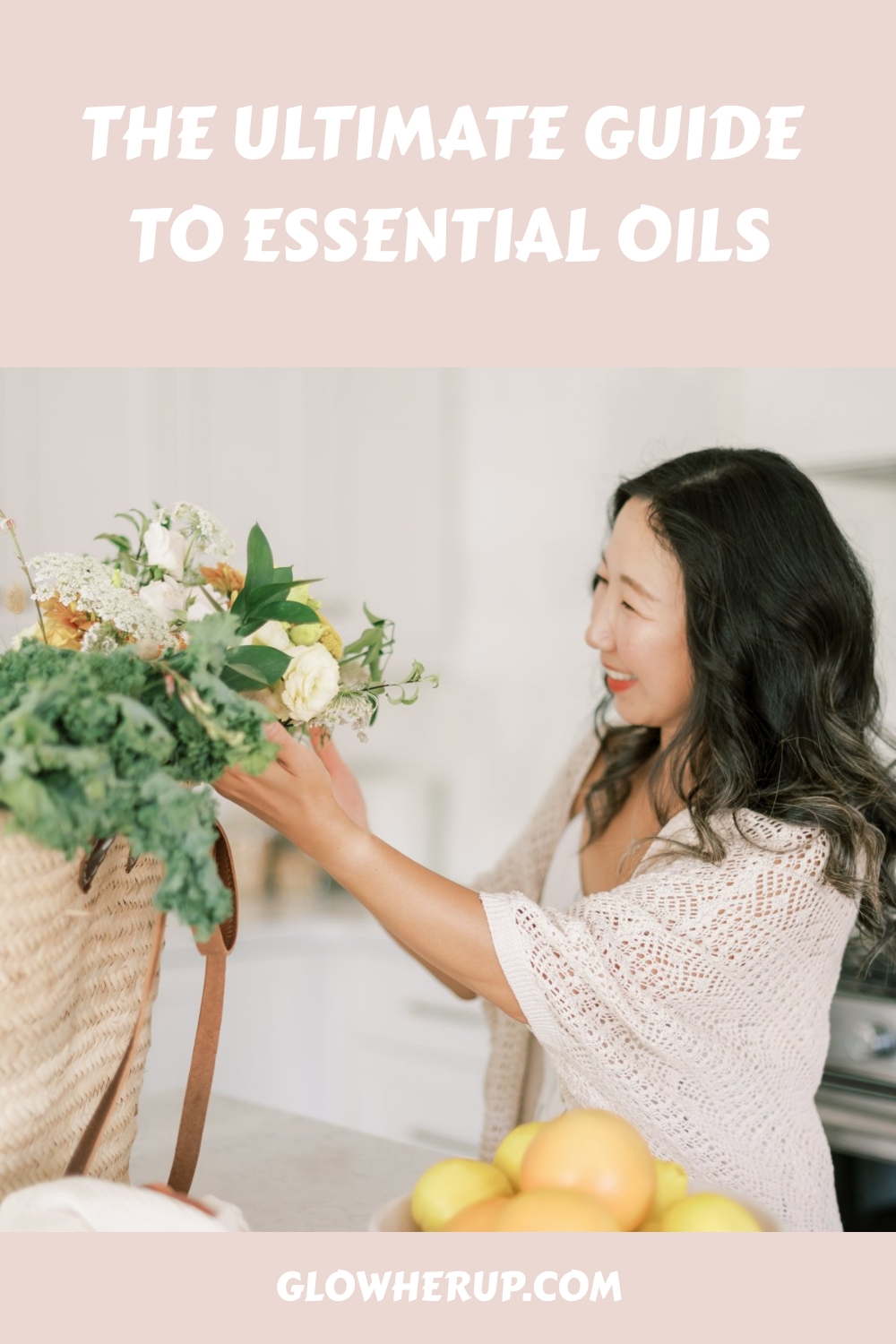Welcome to the ultimate guide to essential oils, where we will explore the benefits, safety considerations, product details, customer experiences, and an insightful review of the Aromatherapy Guide by Amy Galper and Jade Shutes. Whether you are new to essential oils or a seasoned aromatherapy enthusiast, this comprehensive guide will provide valuable information to enhance your knowledge and experience with essential oils.
What are the Benefits of Essential Oils?
Essential oils have been used for centuries for their therapeutic properties and aromatic benefits. These natural oils are derived from plants and possess a wide range of potential benefits, including promoting relaxation, improving mood, and supporting overall well-being. One of the most popular uses of essential oils is through aromatherapy, a holistic healing treatment that harnesses the power of aromatic essential oils to promote physical and emotional health.


How can Essential Oils be Used for Aromatherapy?
Aromatherapy involves the use of essential oils to create a pleasant and balanced aromatic environment. The therapeutic benefits of essential oils can be experienced through inhalation, topical application, or diffusion using a quality essential oil diffuser. Whether you prefer the soothing scent of lavender or the invigorating aroma of peppermint, incorporating essential oils into your daily routine can enhance your overall well-being.
What are the Most Popular Types of Essential Oils?
There are numerous types of essential oils available, each with its own unique scent and potential benefits. Lavender, peppermint, and tea tree are among the most popular essential oils, known for their calming, invigorating, and antiseptic properties, respectively. It’s important to explore and experiment with different essential oils to find the scents that resonate with you and support your wellness goals.
Are Essential Oils Safe for Children and Pets?
While essential oils offer various benefits for adults, it’s important to exercise caution when using them around children and pets. Certain essential oils may not be suitable for use around young children or pets, and it’s essential to dilute oils appropriately with a carrier oil before applying them topically. Always consult with a certified aromatherapist or healthcare professional when using essential oils around children or pets.
How to Use Essential Oils Safely and Effectively
Using essential oils safely and effectively is paramount to maximizing their benefits and minimizing potential risks. It’s crucial to be aware of important safety considerations and effective application methods when incorporating essential oils into your lifestyle.
What Are the Important Safety Considerations When Using Essential Oils?
When using essential oils, it’s essential to adhere to recommended dilution ratios and usage guidelines, especially for topical application. Some essential oils may cause skin irritation or sensitization if used undiluted, and certain oils should be avoided during pregnancy or by individuals with specific health conditions. Additionally, storing essential oils in a cool, dark place and keeping them out of reach of children is imperative to maintain their potency and safety.
What Are Some Effective Methods for Applying Essential Oils?
There are various methods for applying essential oils, including topical application, inhalation, and diffusion. Diluting essential oils in a carrier oil before applying them to the skin can help prevent skin irritation and improve absorption. Additionally, using a diffuser to disperse essential oils into the air allows for easy inhalation and can create a fragrant, calming atmosphere in your home or workspace.
Are There Any Essential Oils to Avoid for Certain Health Conditions?
Individuals with specific health conditions, such as asthma or epilepsy, should use caution when using certain essential oils. For example, individuals with epilepsy may need to avoid stimulating oils like rosemary or eucalyptus, while those with asthma may benefit from avoiding strong aromatic oils like peppermint. It’s always advisable to seek guidance from a qualified aromatherapist or healthcare professional before using essential oils, especially if you have underlying health concerns.
Understanding Different Product Details and Quality of Essential Oils
As the popularity of essential oils continues to grow, it’s essential to understand how to differentiate between high-quality oils and synthetic imitations, as well as how to interpret essential oil labels to make informed purchasing decisions.
What Should You Look for in Essential Oil Labels?
When selecting essential oils, it’s important to look for clear and accurate labeling that includes the botanical name, country of origin, method of extraction, and purity of the oil. Additionally, reputable brands often provide information about the plant part used, cultivation practices, and any applicable safety considerations on their product labels, allowing consumers to make informed choices based on their individual needs and preferences.
How to Differentiate Between Pure and Synthetic Essential Oils?
Pure essential oils are derived directly from plants and contain only the natural aromatic compounds of the plant, while synthetic oils are artificially created and lack the therapeutic properties of pure oils. To differentiate between the two, consider factors such as scent authenticity, color, and transparency. Furthermore, reputable suppliers and brands transparently communicate their sourcing and extraction processes, providing consumers with confidence in the quality and authenticity of their products.
What Constitutes a Good Quality Essential Oil?
High-quality essential oils are typically sourced from reputable suppliers who prioritize sustainable harvesting practices, adhere to strict quality control measures, and prioritize purity and potency. Good quality oils are often tested for authenticity and purity through third-party testing, and reputable suppliers readily provide information about the testing methods and results. By understanding these criteria, consumers can confidently select superior essential oils for their personal or professional use.
Learning from Customer Reviews and Experiences with Essential Oils
Customer reviews offer valuable insights into the effectiveness, user experiences, and potential concerns associated with specific essential oils, helping individuals make informed decisions when selecting products that align with their wellness goals.
How Can Customer Reviews Help in Selecting the Right Essential Oils?
Customer reviews provide firsthand accounts of individuals’ experiences with essential oils, offering valuable information about the aroma, effectiveness, and potential benefits of specific oils. These insights can assist individuals in identifying oils that resonate with their preferences and are well-suited for their intended uses, whether for relaxation, mood enhancement, or targeted wellness support.
What Are the Most Recommended Essential Oils Based on Customer Reviews?
Based on customer reviews, essential oils such as lavender, frankincense, and peppermint are frequently recommended for their calming, grounding, and invigorating properties, respectively. Customers often share their positive experiences with these oils, highlighting their efficacy in promoting relaxation, mental clarity, and overall well-being, making them popular choices for both novice and experienced users of essential oils.
Are There Any Common Concerns or Issues Addressed in Customer Reviews?
While essential oils offer numerous benefits, customer reviews may also address specific concerns, such as allergic reactions, sensitivity, or individual preferences regarding scent intensity. Through comprehensive evaluation of customer feedback, individuals can gain a balanced understanding of the potential benefits and considerations associated with different essential oils, allowing them to make well-informed choices that align with their wellness objectives.
Exploring the Aromatherapy Guide by Amy Galper and Jade Shutes
The Aromatherapy Guide by Amy Galper and Jade Shutes offers a wealth of knowledge and practical insights into the therapeutic and aromatic potential of essential oils, making it a valuable resource for both novice and seasoned enthusiasts.
What Are the Highlights of the Aromatherapy Guide by Amy Galper and Jade Shutes?
This comprehensive guide delves into the principles of aromatherapy, essential oil selection, blending techniques, and safe usage guidelines, providing readers with a thorough understanding of incorporating essential oils into their daily routines and holistic wellness practices. The authors’ expertise and passion for aromatherapy shine through the detailed information and practical recommendations presented in this guide.
How Can This Aromatherapy Guide Enhance Your Knowledge and Experience with Essential Oils?
By delving into the Aromatherapy Guide, individuals can deepen their knowledge of essential oil properties, benefits, and applications, gaining confidence in utilizing essential oils for personal well-being and creating aromatic environments that support relaxation and vitality. Additionally, the guide offers valuable insights into blending techniques, safety considerations, and recommendations for specific health and wellness concerns, enabling readers to harness the full potential of essential oils in their daily lives.
What Sets This Aromatherapy Guide Apart from Others in the Market?
The Aromatherapy Guide distinguishes itself through its comprehensive approach, offering a blend of foundational knowledge, practical applications, and expert guidance to empower readers in their aromatherapy journey. With an emphasis on safety, efficacy, and holistic well-being, this guide provides a well-rounded and insightful resource for individuals seeking to explore the limitless potential of essential oils and aromatherapy. ###
Q: What are essential oils?
A: Essential oils are concentrated extracts from various plants, known for their aromatic and therapeutic properties.
Q: How can essential oils be used?
A: Essential oils can be used in a variety of ways including aromatherapy, topical application, and ingestion (in some cases).
Q: Are there any safety concerns when using essential oils?
A: Yes, it’s important to dilute essential oils before applying them to the skin and to be cautious about using certain oils around children and pets.
Q: What are some popular essential oils and their uses?
A: Popular essential oils include lavender for relaxation, peppermint for headaches, and tea tree for its antibacterial properties.
Q: Can essential oils help with cleaning?
A: Absolutely! Many essential oils have natural cleaning properties and can be used in DIY cleaning products.
Q: Where can I find high-quality essential oils?
A: Look for reputable sellers online or in stores, and check for certifications or testing to ensure purity and quality.
Q: Is it safe to ingest essential oils?
A: It is important to research and consult with a healthcare professional before ingesting essential oils, as some can be toxic if ingested in large quantities.
Q: Can essential oils be used for emotional well-being?
A: Yes, many people use essential oils for their calming or uplifting effects, promoting emotional balance and relaxation.
Q: What is aromatherapy and how does it relate to essential oils?
A: Aromatherapy is an approach to using essential oils for therapeutic benefits, often through inhalation or topical application.
Q: How long do essential oils last?
A: When stored properly (in a cool, dark place), most essential oils have a shelf life of 1-3 years, but some citrus oils can have a shorter lifespan.







Leave a Reply